Israel-Hamas War: What happened on day 117?
Four IDF soldiers, including major, killed in battles across Gaza • IDF kills over 2,000 Hamas terrorists in Khan Yunis as clear out of southern city continues

Netanyahu's strategic gambit for Gaza's future unveiled
A covert Israeli plan aims to establish a military government in Gaza and foster regional ties, eyeing a future Palestinian state and peace with Saudi Arabia.
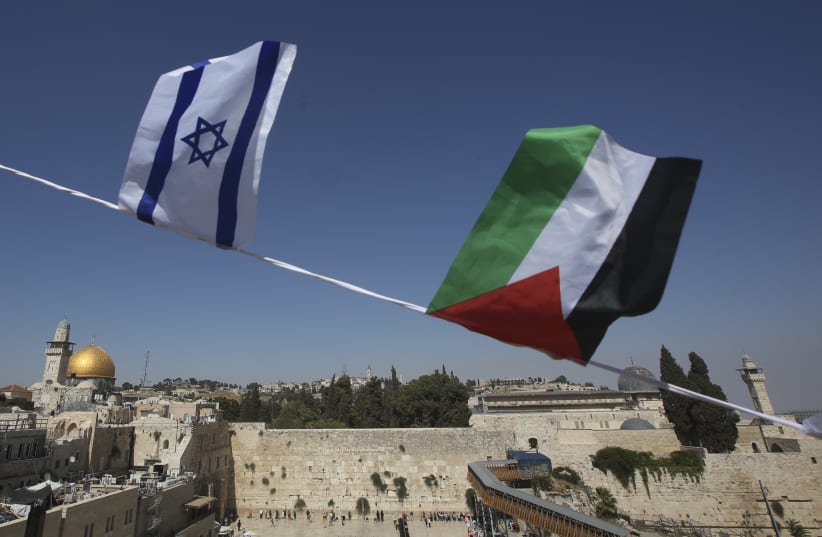
Stage one involves the creation of a comprehensive Israeli military government in Gaza to oversee humanitarian aid and assume responsibility for the civilian population during a "transition period."
Concurrently, stage two will see the formation of an international Arab coalition, including Saudi Arabia, Egypt, Morocco, the United Arab Emirates, Bahrain, and others. This coalition is to be part of a broader regional normalization agreement, backing the establishment of "the new Palestinian Authority."
Officials, neither affiliated with Hamas nor directly associated with Abu Mazen's guard, will inherit Gaza's governance from Israel, concluding the military administration. Israel will maintain the right to conduct security operations in Gaza, mirroring its operations in the West Bank, whenever operational needs to counter terror or terror infrastructures emerge.
The subsequent phase, contingent upon Gaza's stabilization and the success of the new entity ("the new Palestinian Authority"), entails extensive reforms in Judea and Samaria regarding the Palestinian Authority's functionality, educational content, and terror management.
Potential future of a Palestinian state
Should this stage proceed smoothly within a predefined two to four-year timeline, Israel will recognize a delineated Palestinian state within the Palestinian Authority territories and consider transferring additional, non-settlement-requiring lands to that state.
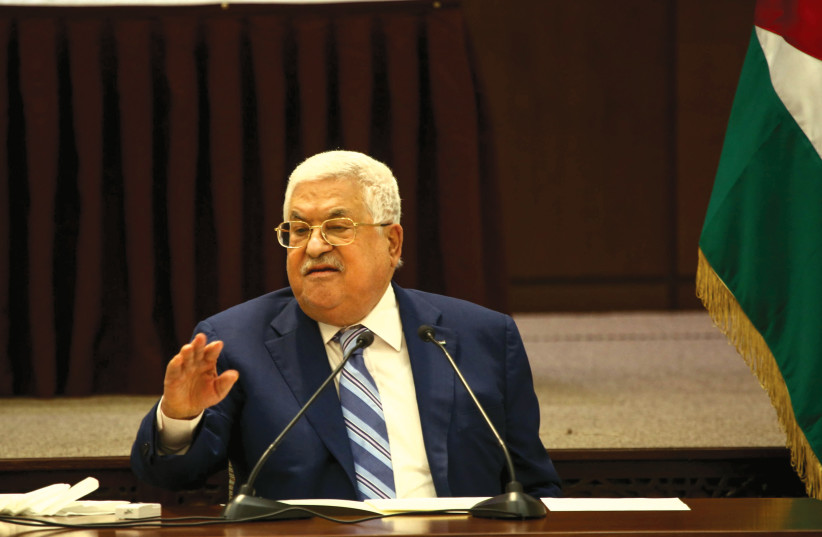
This clandestine plan, devised in Israel by what's herein referred to as "a group of businessmen," was also shared with official American figures. Among these businessmen, several are closely connected to Prime Minister Netanyahu, with one being especially close.
Representing Netanyahu's trial balloon, this initiative aligns with the American-led comprehensive Middle East settlement effort, spanning Gaza, the Palestinian Authority, and Saudi Arabia. Although Netanyahu is not directly involved in these discussions (delegating to his trusted advisor Ron Dermer), he actively forwards and deliberates over these ideas, always able to deny direct involvement by attributing it to "businessmen."
It's crucial to note that this plan is part of Israel's broader strategy for the "day after," alongside several other initiatives. Coordination is underway by Major General Rassan Alian, the Coordinator of Government Activities in the Territories, with the IDF and the Shin Bet each developing their respective plans.
This approach typifies Netanyahu's method: deploying multiple envoys for parallel missions while he himself remains non-committal. The businessmen's scheme is the prime plan Netanyahu considers, yet from a "safe distance" typical of his style.
For instance, early in the last decade, Netanyahu secretly engaged in protracted negotiations with Abu Mazen through the "London Channel," mediated by his then-confidant, lawyer Yitzhak Molcho, and Abu Mazen's personal representative, Hussein Agha. Netanyahu confirmed to President Obama that he was conducting this track with his consent yet kept a "safe distance."
This approach was later integrated into the negotiations led by US Secretary of State John Kerry with Israel and the Palestinian Authority, which culminated in a detailed American proposal for a Palestinian state—a proposal Israel agreed to, while Abu Mazen has yet to respond.
The question remains: Can Netanyahu pivot towards a historic action that would conclude the Gaza conflict and pave the way for a future Palestinian state alongside a landmark peace agreement with Saudi Arabia? The odds seem against it, given Netanyahu's history of abandoning similar initiatives before fruition.
Nevertheless, it's essential to remember that Netanyahu is aware his time is limited. His current legacy is marred by the October 7 massacre, a calamity unprecedented since the state's founding. A move towards an agreement with Saudi Arabia and progress on the Palestinian front could alter the narrative he leaves behind, albeit in challenging times. The decision rests with him.
Go to the full article >>Hamas delegation expected to arrive in Cairo on Wednesday
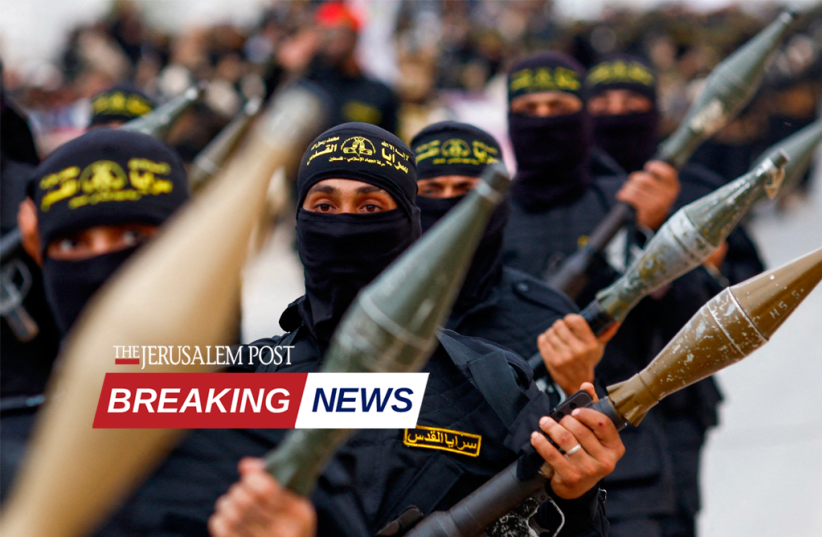
A Hamas delegation is expected to arrive in Cairo, Egypt on Wednesday for hostage deal talks. Israeli officials have reportedly already been in the country since earlier this week.
IDF intelligence chief Maj. Gen. Aharon Haliva and Shin Bet Chief Ronen Bar visited Egypt on Monday to try to convince Cairo to work with Israel on the Rafah problem, The Jerusalem Post has learned.
West Bank could be new Gaza with terrorists using civilian infrastructure - editorial
Israel's military handles all objectives thrown its way, but international support is key.
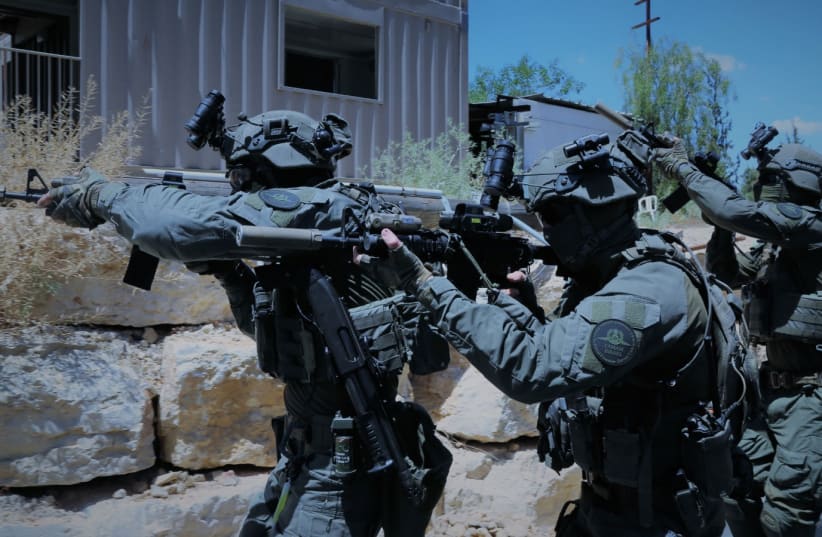
The Israel Defense Forces acted with professionalism and daring to eliminate a terrorist threat in Jenin overnight. The raid against the dangerous terrorists who were planning a major attack took place at Jenin’s Ibn Sina Hospital. Hamas uses hospitals as cover, as has been revealed in operations in Gaza. In this case, the terrorists were at the hospital, presenting a complex challenge for Israel’s security forces.
However, as we have seen in Gaza in four months of fighting, there is no challenge that the IDF cannot overcome. The raid in Jenin was an example of the kind of heroism, bravery, and innovative tactics that Israel has become known for. Many commentators online have compared the images of the security forces entering the hospital in disguise to the counter-terrorism series “Fauda.” Indeed, this was a real-life scenario of what Israel has to do to keep its people safe. Our security forces do these kinds of operations day and night, often out of the limelight, hunting down those who would harm Israel.
On the evening of January 29, the IDF, along with the Shin Bet and police elite counterterrorism units found and eliminated Mohammed Jalamneh, a terrorist who was involved in significant terrorist activity, the IDF said. “The wanted suspect also carried a gun, which was confiscated by the security forces,” the IDF said. Jalamneh had a history of terrorist activity. He had previously been wounded in a car bombing. He had also transferred weapons to terrorists to carry out attacks. Finally, he was eliminated with two other terrorists about to carry out a massacre modeled on the atrocity of October 7.
Many have compared the operation to Fauda
For a long time, wanted suspects have been hiding in hospitals and using them as a base for planning and perpetrating terrorist attacks, while they assume that the exploitation of hospitals will shield them from the counterterrorism activities of Israel’s security forces. This is another example of the cynical use of civilian areas and hospitals as shelters and human shields by terrorist organizations.
Hamas and other terrorist groups, such as Palestinian Islamic Jihad, have sought to turn Jenin into a terrorist hotbed. Over the past year, Islamic Jihad has carried out numerous attacks from this area. It has stockpiled arms. It has put booby traps on streets. Along with Hamas, these groups manufacture improvised explosive devices and rockets. They also are involved in digging rudimentary terrorist tunnels in Jenin.
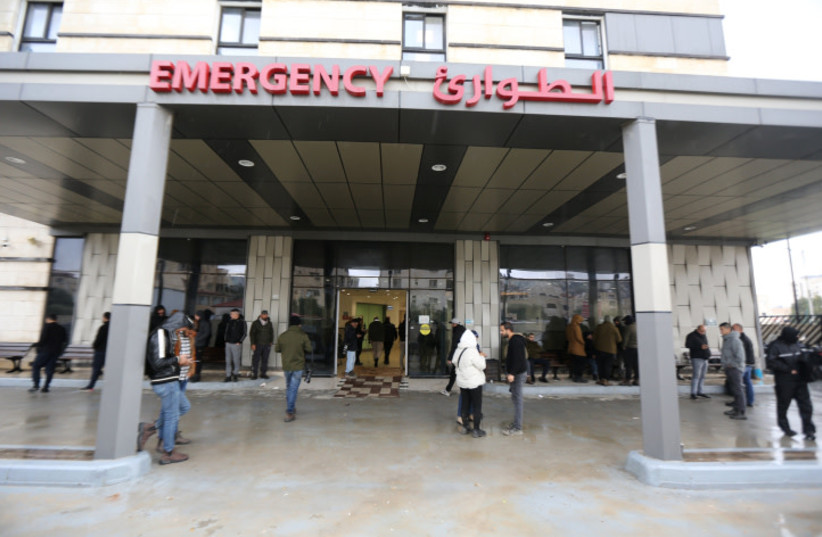
In essence, what we are seeing in Jenin in the West Bank are the beginnings of the kind of terrorist state that Hamas built in Gaza. Israel has acted repeatedly to try to eliminate these threats. However, just as we have seen in Gaza, these groups know how to hide among civilians. Their main method of operating is to disguise themselves as civilians and to use civilian homes and institutions, such as hospitals.
Israel has the daring and expertise to track down these terrorists. However, the international community and Israel’s allies must stand with Israel during these difficult times and sanction the terrorist groups. It is also important that light be shed on how these groups exploit places like hospitals. For too long the terrorists have walked freely among civilians and into hospitals and other areas, using the whole civilian fabric of everyday life for cover. They have this privilege because they have not been properly called out by the international community. Israel can conduct the precision raids necessary to defeat these groups. However, the true defeat of terrorism must come from more pressure on the institutions and society that has for too long tolerated these groups.
International community must stand with Israel
Israel’s security forces represent the cutting edge of our society’s war against terrorist threats. These threats occur in a variety of locations and can manifest themselves at any time. As we saw on October 7, it is essential to never be complacent. The security forces have worked hard over the last months under incredible burdens to protect Israel. They deserve all the support and congratulations for these operations.
While the operation in the hospital has been shared with the public, the efforts to protect Israel occur 24/7 in thousands of ways that the public is not aware of. For that, we are eternally grateful to those who hold the line, day and night, and keep us safe so our state may prosper and grow.
Go to the full article >>US House Foreign Affairs Committee displays partisan divide over UNRWA funding
Republicans cited UNRWA's schools and curriculum, which they said teaches antisemitism and hate for Israel, as a reason the agency should be defunded.
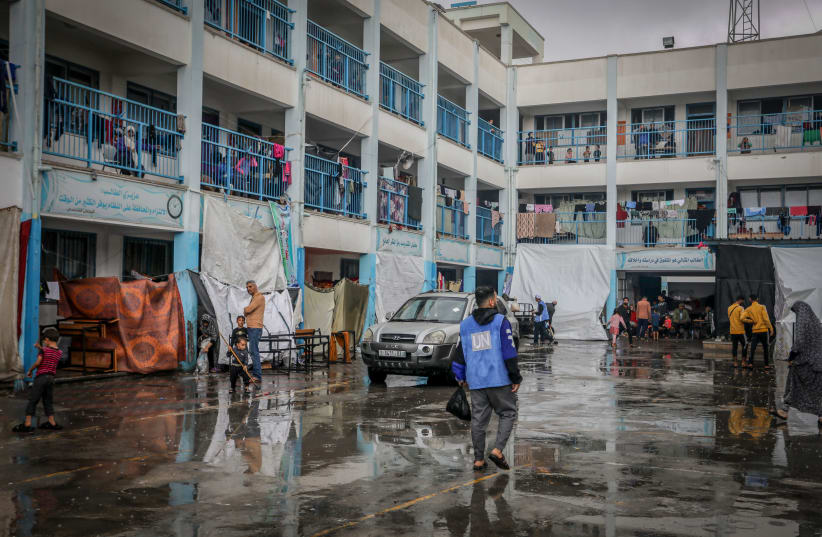
NEW YORK - Members of the House Foreign Affairs Committee are at odds over handling the immediate future of the United Nations Relief and Works Agency as the threat of starvation increasingly looms over Gaza.
UNRWA is the main provider of basic humanitarian needs like food, medicine, and education in the Gaza Strip.
The US, the agency's largest donor, pledged its support with a $153.7 million contribution to the agency in June 2023, UNRWA said in a statement.
According to the State Department, the US has provided $121 million to UNRWA since the fiscal year began on Oct. 1.
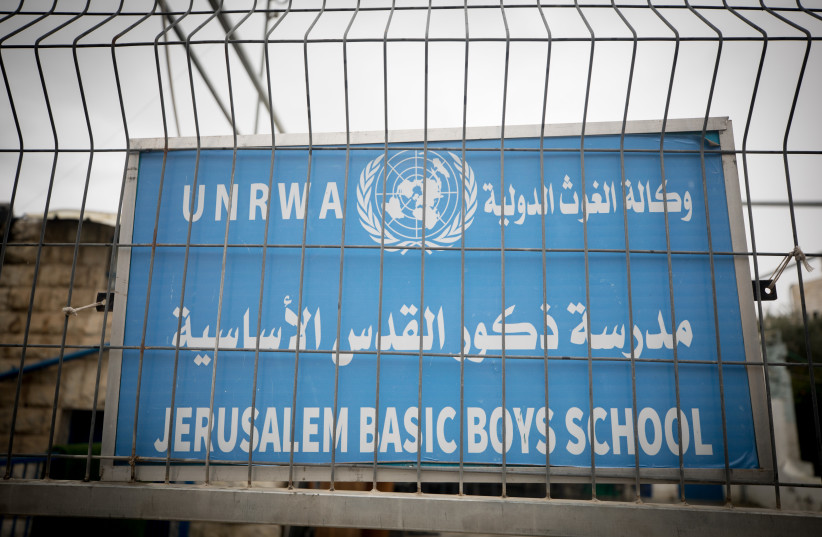
Republican committee members slammed the Biden administration's support for the agency at a hearing Tuesday called "UNRWA Exposed: Examining the Agency's Mission and Failures," and overwhelmingly called for the dissolution of UNRWA.
Demonstrators were seen and heard throughout the hearing. Some wore shirts supporting Israel and calling for the release of the hostages, others wore shirts in support of Gaza and held up their hands symbolically painted red.
Rep. Chris Smith (R-NJ), co-chair of the Israel Allies Caucus, described Biden's decision to temporarily suspend UNRWA funding as reports surfaced of agency staff member's involvement in the Oct. 7 attacks on Israel as a "long overdue response."
"Going far beyond the revelations of last week, however, there has been massive and irrefutable evidence of UNRWA's extensive complicity and cooperation in Hamas' antisemitic, genocidal hate campaign," Smith said.
On Monday, Smith introduced legislation aimed at curbing all US funding for UNRWA.
The "Stop Support for UNRWA Act of 2024" is cosponsored by Rep. Brian Mast (R-FL) and Rep. Joe Wilson (R-SC), and would prohibit the US Government from making any voluntary or involuntary contributions to UNRWA or to the regular budget of the UN for the support of UNRWA, according to a release from Smith's office.
"Let me be clear that we are examining UNRWA because the agency directly and indirectly supported Hamas and other terrorist organizations in multiple, different ways," Mast said at Tuesday's hearing.
Politicians divided on UNRWA funding
Both Smith and Mast praised former President Donald Trump for his administration's decision to halt UNRWA funding.
Republican members focused heavily on UNRWA's schools and curriculum, which they said teaches antisemitism and hate for Israel. Republican members called on witnesses from watchdog groups that study the UN, UNRWA, and their practices.
Republican's witness Richard Goldberg, a senior advisor at the nonpartisan think tank Foundation for Defense of Democracies, described UNRWA as a "horror show that has decades in the making, co-produced by the United States taxpayer."
"Terrorism support and subsidy for UNRWA is a feature, not a bug," Goldberg said. "The organization is built from its core mission, its mandate, to indoctrinate generation after generation to hate Jews and to destroy Israel."
While Republican and Democratic members mostly agree that UNRWA needs either reformation or replacement, they disagree over how the immediate humanitarian crisis should be addressed.
Rep. Jason Crow (D-CO) cited his experience as a combat veteran as a factor in his support for continuing aiding Gazans.
"The complexity of this situation cannot be overstated. From my experience in combat zones, and my understanding of our nation's 20 years of war in the Middle East, have made it clear to me that conditions in which people are starving, fearful or hopeless do not breed peace, and they will not bring security to Israel or to the broader region," Crow said. "People's basic needs must be met."
Crow said he has deep concerns about the security impact and moral implications if funding is shifted or halted.
Crow also said the actions of the 12 UNRWA staff members involved in Oct. 7 should not speak for the entire organization.
"It is possible to acknowledge the life saving nature of assistance that UNRWA provides and the importance of ensuring that humanitarian assistance reaches the people of Gaza without diversion or misuse by Hamas or other nefarious actors," Crow said.
"This is not to understate the very real challenges and concerns about the integrity of UNRWA that had been raised by my colleagues and others, and the need for substantial reform or to find a successor organization or to fulfill the functions," he added.
The Democrat's witness, University of Virginia professor Mara Rudman, is a former deputy envoy and chief of staff for the Office of the Special Envoy for Middle East Peace at the State Department, and called for the continuation of UNRWA funding as the UN's investigation continues. Rudman said this is imperative for US and Israeli security.
Rudman said the issue of UNRWA's curriculum can only be addressed once Gazan's basic needs are met.
"Aid must resume to under at the same time though as the assessment is being carried out. The United States, Israel, the world cannot afford the risk of famine taking root in Gaza," Rudman said. "That problem will not stay in Gaza, it is very directly threatening to the security and stability of Israel and the region, and thus the United States."
Rudman argued that responsibility for the services UNRWA provides cannot be transferred to other organizations, like the UN High Commissioner for Refugees or the World Food Programme, in enough time before Gaza is expected to face famine in a matter of weeks.
Goldberg hotly contested this point.
"This isn't the first time we've had a conflict in the world where we had to move quick funding for humanitarian support. The UN moves in our direction, UN agencies move at our direction. And the money, follow the money into conflict," Goldberg said. "We move very quickly when we want to to set up relief for people in need when there is a crisis in the world. We have done that for decades. There are organizations that exist."
The more than two hour hearing ended without conclusive actions planned.
Mast said Republicans will announce further legislation in the coming days to prevent additional UNRWA funding.
On Monday, Rep. John Curtis (R-UT) introduced the "Determining Excessive Funding for the United Nations for Dereliction (DEFUND) Act" which would require the State Department to rank (UN) agencies on how vital US involvement is to the country's interests, according to a statement on Curtis' website.
On Oct. 31, Sen. Pete Ricketts (R-NE) introduced legislation called the "Stop Support for Hamas Act" which would completely cut off US funding for UNRWA.
Earlier Tuesday, the State Department indicated its decision to resume funding is contingent on the findings of the UN investigation as well as UNRWA's willingness to accept responsibility and implement measures to ensure its staff are not involved with Hamas terrorist efforts.
US shoots down missile fired by Houthis toward Red Sea, Pentagon says

Iranian-backed Houthi militants fired one anti-ship cruise missile from Yemen toward the Red Sea on Tuesday, the US military's Central Command said, adding that a US destroyer in the area shot it down.
No injuries or damage were reported, the Central Command said.
Go to the full article >>Gush Ezion Council releases name of fallen soldier

Sgt.-Maj. Yuval Nir, from Kfar Etzion, fell in battle in Gaza, the Gush Etzion Regional Council announced on Tuesday.
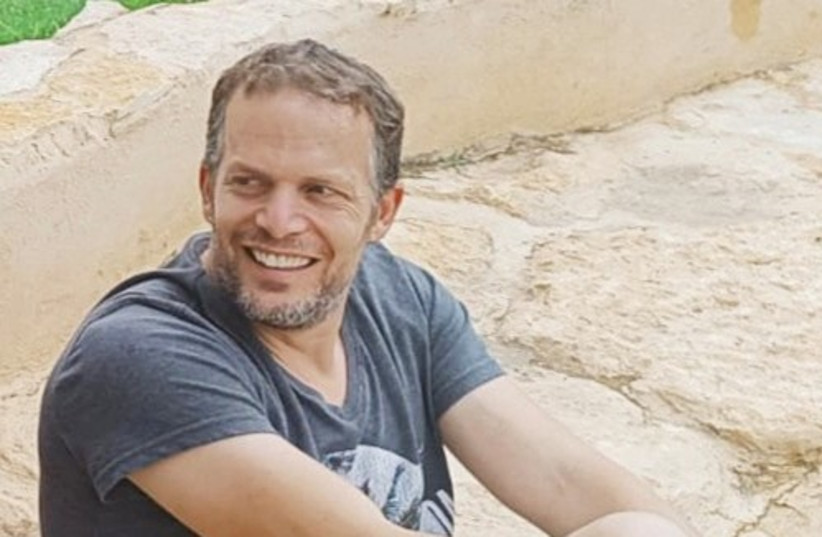
Hamas: We are reviewing three-stage Gaza hostage deal proposal
“We are making progress on trying to get an extended pause in place, so we can get those hostages out,” US National Security Council spokesman John Kirby said.
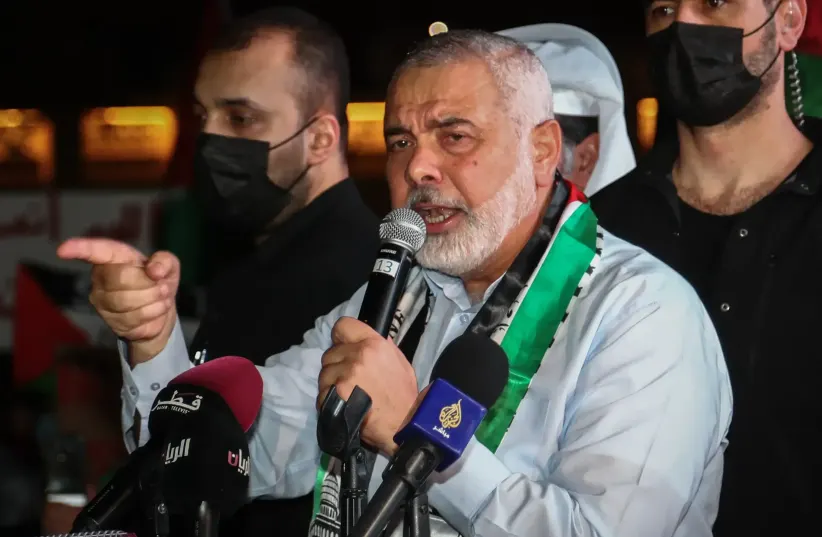
The United States expressed optimism about a potential Gaza hostage deal, as Hamas said it was reviewing a three-stage proposal and as coalition parties threatened to bring down the government over the matter.
“We are making progress on trying to get an extended pause in place, so we can get those hostages out,” US National Security Council spokesman John Kirby told reporters on Air Force One en route to Florida.
He spoke one day after Qatari Prime Minister Mohammed Al-Thani met with US Secretary of State Antony Blinken in Washington. US National Security Adviser Jake Sullivan met on Tuesday with visiting officials from Qatar, the White House said.
Qatar, together with Egypt, has played an intermediary role in trying to gain the release of the remaining 136 hostages out of the 253 captives seized during the Hamas massacre in southern Israel on October 7.
Kirby told reporters that Sullivan would meet with families of those hostages who hold dual Israeli-American citizenship. Thani’s visit to Washington, following a high-level meeting in Paris led by CIA Chief 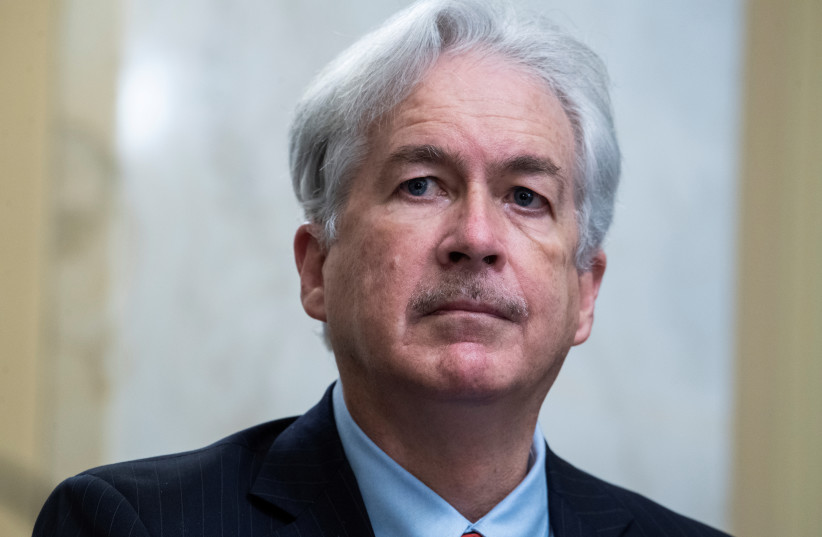
Deal to include three stages
A senior Hamas official said the proposal involved a three-stage truce, during which the group would first release remaining civilians among hostages, then soldiers, and finally the bodies of hostages that were killed. Some media outlets have speculated that a deal could be reached that could see releases as early as next week.
The official, who spoke on condition of anonymity, did not indicate how long the three stages would last or what was envisioned to follow the final stage.
But it was the first time since the collapse of the only brief truce of the war so far, in late November, that details were released of a new proposal being considered by both sides.
In a mark of the seriousness of the negotiations, Hamas chief Ismail Haniyeh said he was going to Cairo to discuss it, his first public trip there for more than a month.
But Israeli Prime Minister Benjamin Netanyahu repeated his vow not to pull troops out of Gaza until “total victory,” a reminder of the huge gap in the public stances of the warring sides about what it would take to halt combat even temporarily.
Netanyahu is under pressure from Israel’s closest ally, the United States, to chart a clear path towards ending the war and domestically from relatives of hostages who worry that negotiations are the only way to bring them home. But far-right parties in his ruling coalition say they will quit rather than endorse a deal to free hostages that left Hamas intact.
Hamas leader Haniyeh, who is studying the proposal, said the priority for Hamas was to end the Israeli offensive – now in its fourth month – and secure a full pull-out of Israeli forces from Gaza, Haniyeh said.
Netanyahu, speaking during a visit to the West Bank settlement of Eli, said: “We will not compromise on anything less than total victory. That means eliminating Hamas, returning all of our hostages, and ensuring that Gaza will no longer pose a threat to Israel.”
Until then no Palestinian prisoners will be freed from Israeli jails, Netanyahu said.
The Prime Minister’s Office published a statement underscoring that Netanyahu’s positions have been consistent, “the war will end only when all its goals are achieved, the IDF will not withdraw from the Strip and thousands of terrorists will not be released.”
It stressed that publications that “a so-called agreement” was reached based on the release of security prisoners are not true. “The issue was not discussed at all,” it said.
Sami Abu Zuhri, another senior Hamas official, said Netanyahu’s comments “prove he isn’t interested in the success of the Paris meeting and doesn’t care about [Israeli] prisoners’ lives.”
Neither Hamas nor Israel has publicly backed away from their redlines, which for Israel is its insistance that the IDF must remain in Gaza and the war must continue until the terrorist group is ousted from the Strip. Hamas, in turn, is insisting that any deal must include a permanent ceasefire and an IDF withdrawal from Gaza.
The possibility of a deal rests on the ability of negotiators to find slight flexibility for a deal that would include a pause to the war, the release of Palestinian prisoners, and the increased entry of humanitarian assistance into the enclave.
Go to the full article >>War against Hamas to last through 2024, possibly longer - IDF
While Israel has achieved significant military gains and greatly damaged Hamas, they have struggled to control conquered land and still face threats from Hamas fighters.
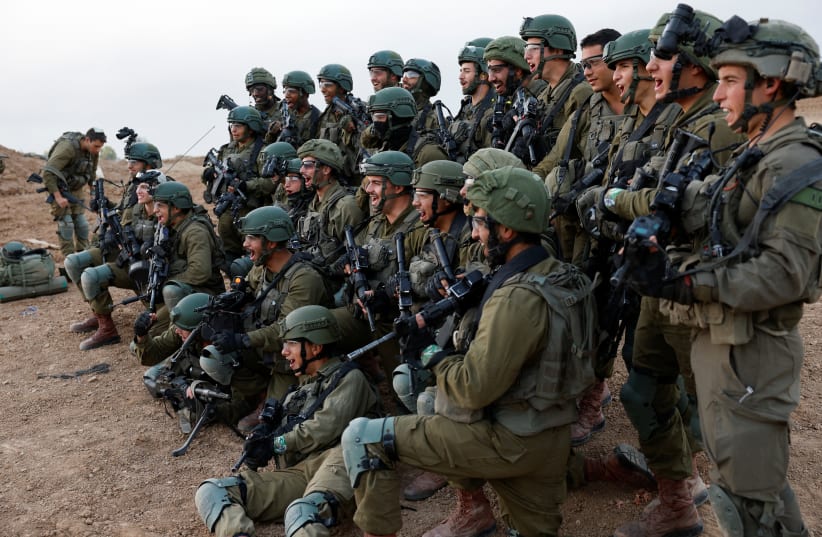
The Israeli Defense Forces anticipate their war efforts against Hamas in Gaza will last the entirety of the year and possibly into 2025, an IDF official told reporters on Tuesday.
The Israeli official said Israel remains far away from achieving its goals of capturing Hamas' leaders and disabling Hamas’ military infrastructure, according to a Tuesday Bloomberg report.
After initially beginning their military operation in Gaza’s north, the IDF has been operating in Khan Yunis over the last two months. While Israel has achieved significant military gains and greatly damaged Hamas, they have struggled to control conquered land and still face threats from Hamas terrorists.
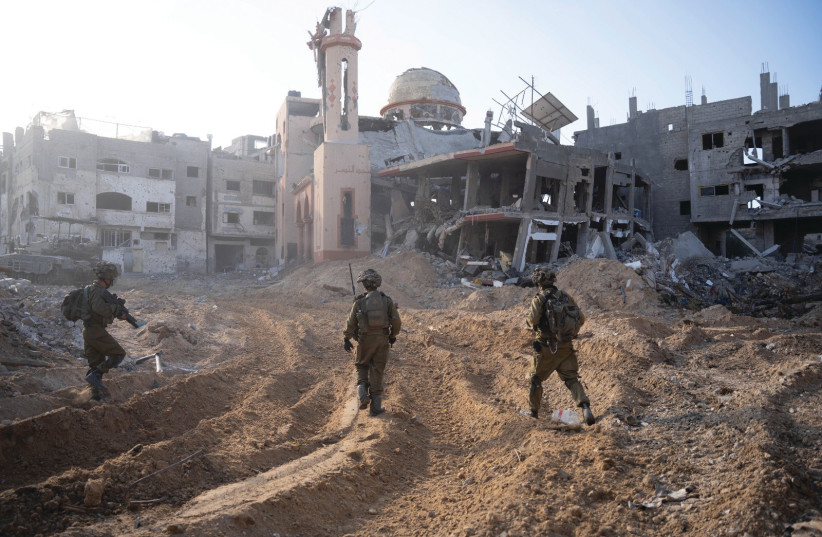
A protracted war
Despite warnings that the Israel-Hamas War is set to last longer than initially anticipated, the IDF is reportedly close to defeating Hamas in Khan Yunis, with some estimates that the terror group's ability to fight as an effective collective force could be broken within weeks or less. Of the 4,500 Hamas fighters initially stationed in Khan Yunis, 2,700 have been killed, over 1,000 in close combat, and over 1,700 by tank, artillery, or aerial attacks.
Despite all of these achievements, IDF sources are unsure if they will catch Hamas's leadership and the Israeli hostages they are holding within Khan Yunis. A rising number of IDF officials believe that portions of Hamas's leadership and their hostages may have fled to Rafah, where there are close to 1.5 million Palestinian civilians to hide among. Additionally, another 105,000 Palestinian civilians recently left Khan Yunis for other safe zones, with around 20,000-30,000 remaining in Khan Yunis.
Around 2,000 Hamas fighters are still believed to be in northern Gaza among around 200,000 civilians and are said to be trying to reconstitute themselves as a force while Israel’s government lags in implementing its strategy for transitioning northern Gaza into a post-Hamas area.
Controversial move may bolster war effort
The IDF announced Tuesday that they have been flooding Hamas terror tunnels with seawater to hinder Hamas fighters and destroy infrastructure in a low-cost and safe manner. The move is seen as controversial, with critics pointing to the ecological damage and the potential to kill or injure Israeli hostages held by Hamas inadvertently.
The flooding system is most effective near the Mediterranean Sea and cannot be used in areas where the IDF has concerns that it could harm the Gaza land in the long term. Special IDF analysts also study different kinds of topography to see where it is likely to be most valuable in destroying tunnels.
Yonah Jeremy Bob contributed to this report.
Go to the full article >>IDF reveals how it floods Hamas underground world with anti-tunnel tool
Israeli officials have been leaking details to foreign media about what they called "Atlantis" for months.
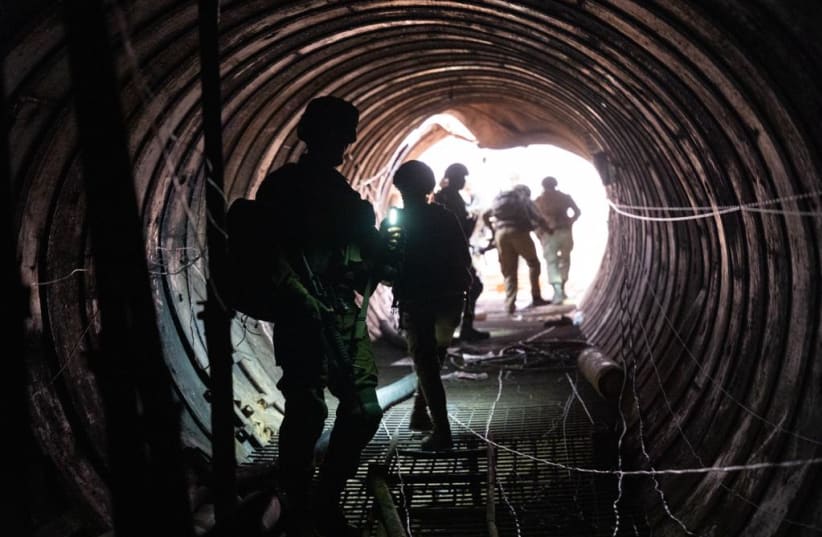
The IDF on Tuesday finally allowed the Israeli media to publish more comprehensive details about its anti-tunnel flooding project against Hamas in Gaza.
Israeli officials have been leaking details to foreign media about what they called "Atlantis" for months, but the censor has actively prevented The Jerusalem Post and others from disclosing these details.
The IDF said that the flooding tool is one of many for fighting Hamas's tunnels, including also explosives, robots, air strikes, and sending in soldiers.
While the system has made real contributions to combatting Hamas's tunnels in some areas, there are many limits, and it is not seen as a solution to the whole tunnel problem by "snapping one's fingers" type solution. It is well known that Hamas's tunnels move in many different directions and use blast doors and other items, which could thwart or reduce the effectiveness of the flooding system.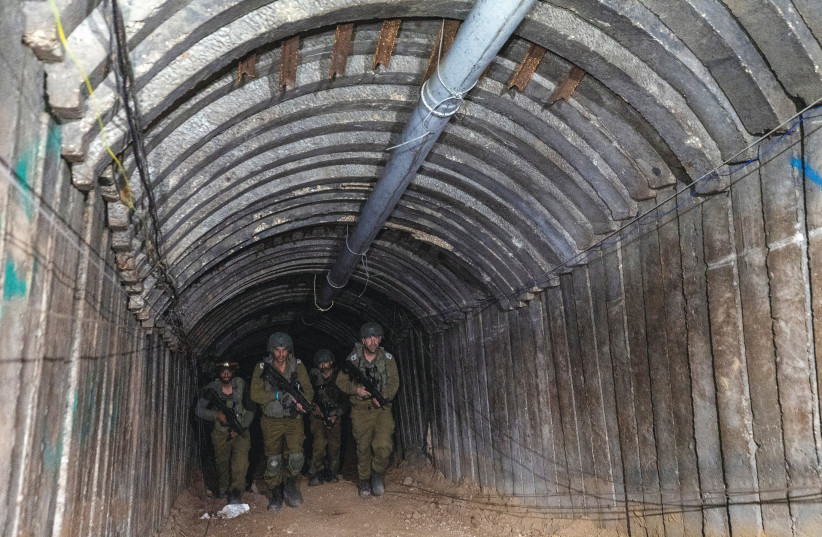
Flooding system most effective closer to coast
The flooding system is most effective near the Mediterranean Sea and cannot be used in areas where the IDF has concerns that it could harm the Gaza land in the long term.
Special IDF analysts study different kinds of topography also to see where it is likely to be most valuable in destroying tunnels.
In addition, the IDF said that it took time to deploy the system since a whole specialized array of units had to be trained to deploy it.
A statement said that the system is " a breakthrough" for fighting Hamas's tunnels and exemplified positive cooperation between the Defense Ministry, the IDF, and other defense bodies.
The IDF declined to provide any data about how many tunnels have been destroyed by the system.
Go to the full article >>Israeli commandos, dressed as doctors, foil terror attack in Jenin hospital
The Israeli commando forces entered the hospital dressed as doctors and nurses, as seen in CCTV footage shared on social media.
Israeli counterterrorism forces foiled an October 7-inspired terror attack overnight on Tuesday, targeting a cell hiding and planning the attack from the Ibn Sina hospital in Jenin, the West Bank.
According to a joint statement by the IDF, Israel Police's YAMAM counterterrorism forces, and the Shin Bet, Hamas terrorist Mohammad Jalamna was killed during the operation, along with two fellow terrorists who hid alongside him at the hospital.
27-year-old Jalamna, a resident of the Jenin refugee camp, held direct communications with Hamas leadership abroad. According to the statement, he was responsible for transferring weaponry and ammunition to Hamas terrorists across the West Bank for shooting attacks targeting Israelis.
The Israeli commando forces entered the hospital dressed as doctors and nurses, as seen in CCTV footage shared on social media.
'Planned to carry out October 7-inspired attack'
Furthermore, Jalamna used the Jenin hospital as a secret base of operations as he was planning an infiltration attack akin to and inspired by the October 7 massacre, it added.
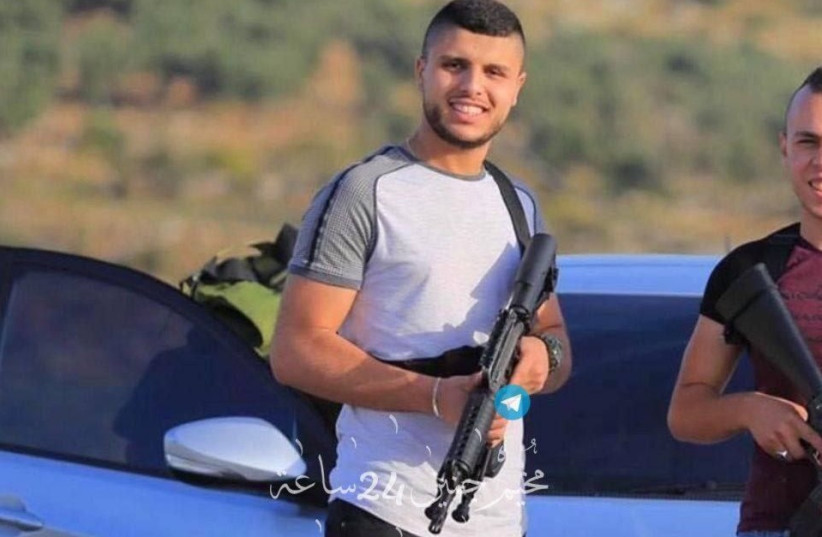
Along with Jalamneh, Mohammed and Basel Ghazawi, brothers and Palestinian terrorists, were also killed by Israeli forces. Mohammed was a terrorist operative of the Jenin battalions who was involved in numerous attacks including firing at IDF soldiers in the area in recent weeks, the IDF said.
Basel was a Palestinian Islamic Jihad operative involved in terror activities in the area.

Hamas's use of hospitals as bases of terror
The security forces stated that for a long time, a large number of wanted persons had been hiding in hospitals and were using them as a base for planning terror attacks and carrying them out, and that they believed that the hospitals would serve as protection against Israeli security forces.
The statement said that the operation was made possible due to accurate intelligence received before the operation, and an operation of this nature was unprecedented.
One senior official stated, "There are no cities of refuge in the West Bank and there will not be - every terrorist should know this. The hand of the IDF and the security establishment will reach everyone."
Go to the full article >>Israel-Hamas War: What you need to know
- Hamas launched a massive attack on October 7, with thousands of terrorists infiltrating from the Gaza border and taking some 240 hostages into Gaza
- Over 1,200 Israelis and foreign nationals were murdered, including over 350 in the Re'im music festival and hundreds of Israeli civilians across Gaza border communities
- 136 hostages remain in Gaza, IDF says